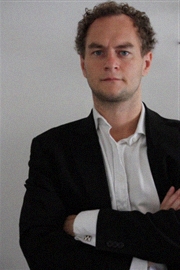Tutor HuntResources English Resources
Sylvia Plath: Poet In The City
Review of a poetry event for Astronaut Reviews
Date : 27/01/2014
Author Information

Uploaded by : Michael
Uploaded on : 27/01/2014
Subject : English
Image
Sylvia Plath: Poet in the City 23 September
It's 50 years since writer and artist, Sylvia Plath, took her own life at just 30. Urbane, urban spoken-word charity, Poet in the City, organised a reading and discussion event of the her work in the wonderfully Scandinavian-feeling wood interior of King's Place Hall One.
Actress Juliet Stevenson read from Plath's work, lading it with the needed line-by-line dramatisation of certainty and uncertainty, confusion, bafflement, and brazenness, all unfolding among her sonorous words and the unsettling imagery. The most striking poem of her introductory set was "Stillborn," where Plath - contrary to our every understanding of her work - finds she cannot make her poems live. They smile and smile and smile in their pickling jars, but never speak of her, she says.
Andrew Wilson is author of a new biography, mining several new personal sources and much new material only released this year. He wanted to give us Sylvia as "angry young woman" and argued that the young writer had a lot of to be angry about. He spoke of sexual frustration ("dragging my damp desire from date to date"); her gender's supporting role despite her liberal arts education at Smith College (potential fiancée deciding that she was to resign her writing to be his doctor's wife); and her family's poverty following the death of "Daddy" (sharing a room with her clingy mother in a two bed house with her brother and grandmother, dimming the lights so boyfriends wouldn't see the rips and stains in the wallpaper.)
Plath also had to contend with others trying to control her work: three huge archives, assembled mostly by her mother, contain over 200 still-unpublished poems (among miles of hair, drawings, letters) - which may never see the light of day if the Estate doesn't agree to it; meanwhile, Ted Hughes, husband, dated her "juvenilia" to the period just before the two met.
University of Exeter academic, Dr Jo Gill, questioned both the artlessness and honesty of the confessional style of poetry that Plath did so much to develop. While this "Lady Lazarus" revealed everything - bones, ash, man-eating teeth - she was also engaged in a masquerade, and in silence and self-censorship, and in disappearance. Gill said other academics are looking beyond the hoary old chestnuts of sanity/Hughes/suicide: Plath's environmentalism, her mid-Atlantic-ness, even her poetry in light of the Cold War were all being examined.
Finally, Mexican-American singer and poet, Liza Garza, wanted to put the humanity back into Plath - to see her as a mother, a sister and a friend. In a surprisingly tense moment, she admitted how scared she had been of having her own young artistic voice dissected by the academics and writers (like those who flanked her on-stage). Garza, above all, wanted to celebrate Plath's resiliency in the face of the many challenges she had faced. Like Frida Kahlo, Garza said, Plath's vulnerability was on show for all to see in her art - and yet it did not invite pity. She was no victim.
Fifty years after she left us, much "tension" (that academic word standing in for things that cannot be properly squared or decided) still exists in both Plath's work and among critical following. Poet in the City, did a massive job of assembling experts who passionately believed in the supremacy of one aspect of this amazing poet (her voice, her vitality, her mind and her humanity) The speakers created more than the sum of their parts live on stage and brought new sparks and crackle to this astonishing writer.
Cycling back from King's Place in Kings Cross, I felt like my inner poetic battery had been plugged back into the mains. I wanted to suddenly re-address all work under construction to some hated and / or revered "you."
I realised how terribly important that the moment of a poem be a critical turning point or a point of realisation. That every object observed could be made special by a kind of outrageous ceremonial noticing, like in Plath's work - from going into the cellar with a torch, to watching mushrooms grow, even just to being on a moor. Plath makes the moment NOW bleed.
Set list
Recording of Sylvia Plath
1) Spinster
Juliet Stevenson
2) Wuthering Heights 3) Stillborn 4) Full Fathom Five 5) Daddy 6) Crossing the Water 7) Magi 8) Ariel 9) Morning Song 10) Arrival of the Bee Box 11) In Plaster 12) The Rival 13) Child 14) Cut 15) Words 16) Sheep in Fog 17) Wintering
Recording of Sylvia Plath
18) Mushrooms
This resource was uploaded by: Michael
